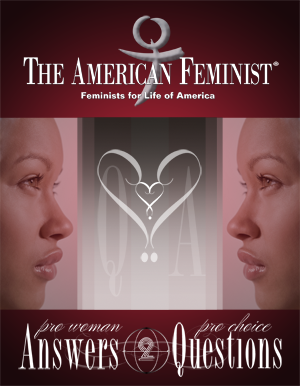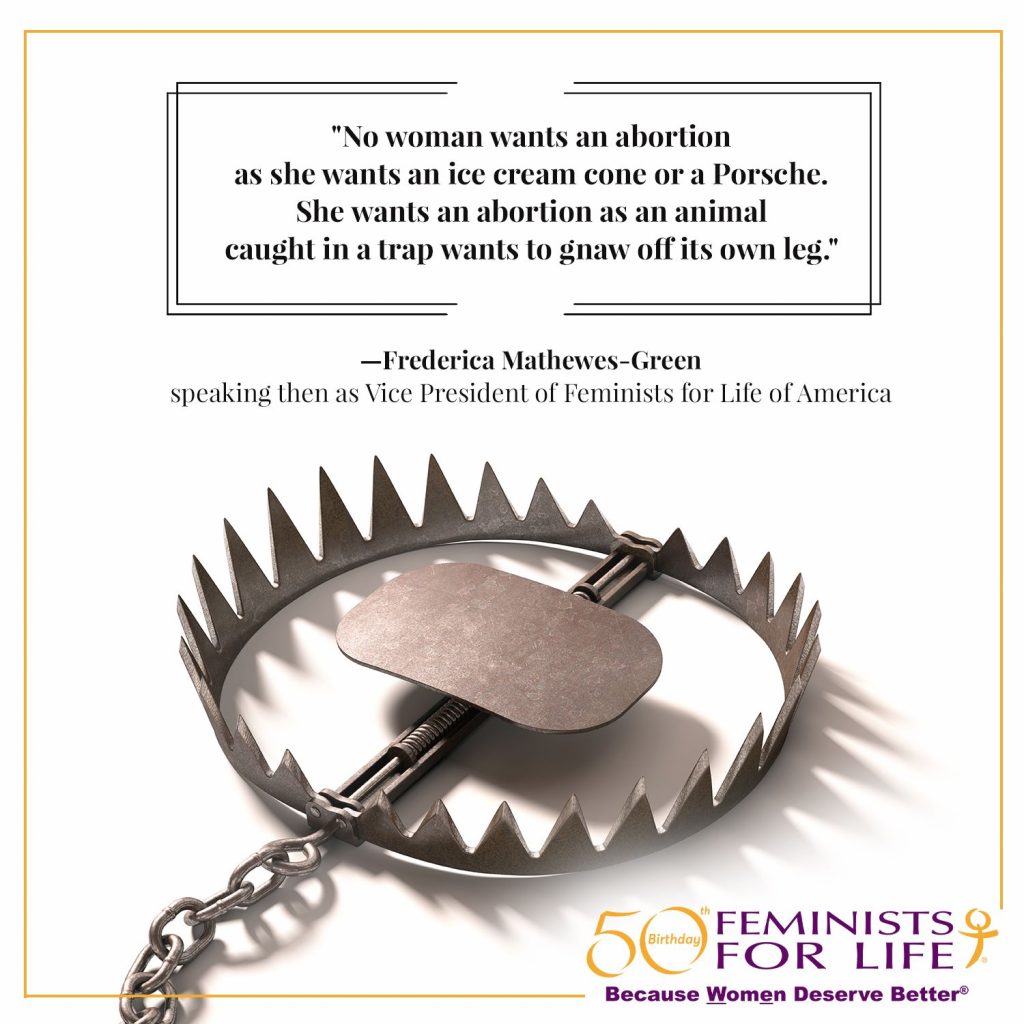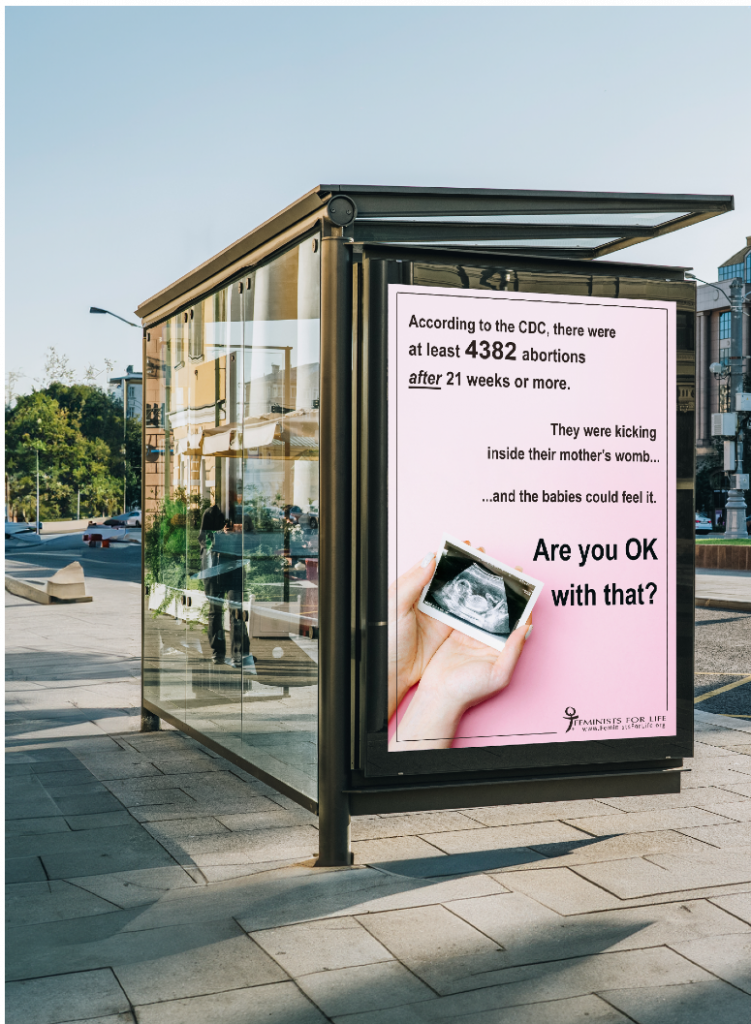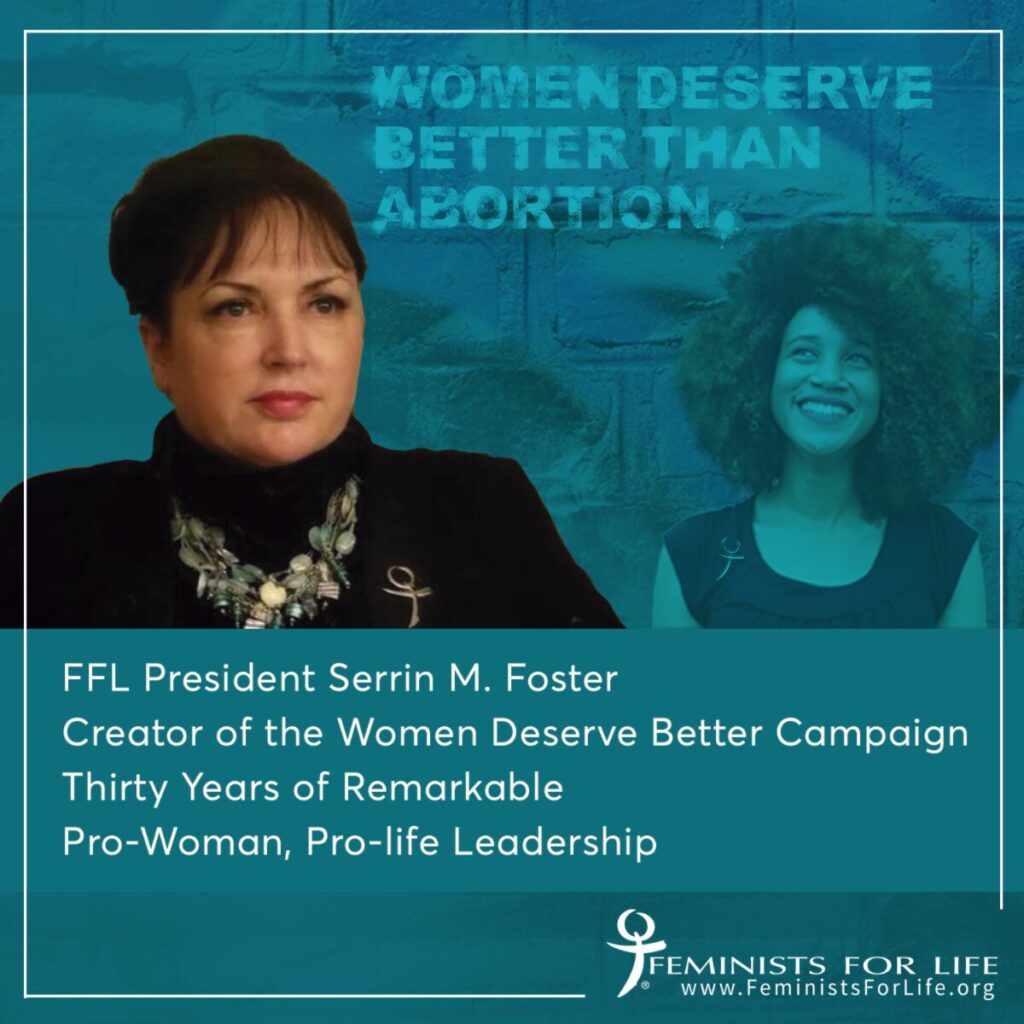Feminism is much more than that.
As a teen, I remember the electrifying call for equality during the ’70’s women’s movement, and how it challenged and changed the nation. The idea was so compelling it still circles the world.
By definition, equality is a principle extended to all. When one group of people gets their rights at the expense of another, there is nothing equal about it.
The foundation of feminism is built on the basic tenets of nonviolence, nondiscrimination, and justice for all. Abortion is discrimination based on age, size, location, and sometimes gender, disability, or parentage. And it is often the result of a more insidious form of discrimination: the lack of resources and support that pregnant women need and deserve.
As I entered college, the women’s movement continued to gain momentum. Cries for equality in the workplace were muffled by the even louder call for “abortion rights” and “pro-choice.” You were either pro-woman or pro-baby. As a pro-life feminist, I felt very much alone.
When I found Feminists for Life I knew that I was “home.” Then I learned that during the past two centuries, visionary women like Susan B. Anthony, Elizabeth Cady Stanton, Mary Wollstonecraft, and Alice Paul had worked for justice and women’s rights—without choosing between women and children.
Elizabeth Cady Stanton is perhaps the best example of the in-your-face, you-will-accept-women-on-our-terms-and-we-are-not-accepting-less suffrage leaders. Stanton, the first champion of women’s suffrage and a mother of seven, said, “When you consider that women have been treated as property, it is degrading to women that we should treat our children as property to be disposed of as we see fit.” [Click here for more early American feminist wisdom.]
The early American feminists did not work to replace a patriarchy with a matriarchy. Women have a right to be women in the workplace and in school. Women shouldn’t have to pass as men.
When women think they have to lay their bodies down or swallow a bitter pill for an abortion in order to compete in the workplace or make their way in the world—that is not feminism. In addition, abortion has hurt women by diverting feminist attention from other issues, particularly those that help mothers, such as affordable child care, comprehensive health care, and a living wage.
Finally, once a woman is pregnant, she is forever changed, no matter what the outcome—marital, partnered or single parenthood, adoption, abortion, miscarriage or stillbirth.
At Feminists for Life, we refuse to choose between women and children. We refuse to choose between our education and career plans and our families.
As pro-life feminists, our values are woman-centered and inclusive of both parents and children. And like the early American feminists, we are not accepting less.
We say “no” to the status quo. Let’s aim for the best by advocating resources and support for women, and protecting both mothers and children from violence. Women deserve better.
– FFL President, Serrin M. Foster









